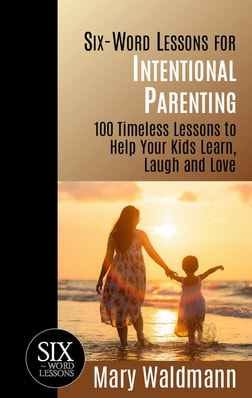 I read an interesting article in the new Atlantic Monthly magazine today, parts of which I’d like to share with you. Those of you who’ve read my Six-Word Lessons for Intentional Parenting know that I talk about parenting in a way that teaches empathy, conscience and responsibility for actions. In this article, How to Guilt Trip Your Kids (They’ll Thank You Later), author Libby Copeland cites numerous studies about guilt and conscience in young children. Children aren’t born knowing how to say “I’m sorry”. Conscience and guilt feelings don’t begin to develop until age 3 or later and you need to encourage it. As Copeland says, “In the popular imagination, of course, guilt still gets a bad rap…guilt is deeply uncomfortable… Who wants to inflict that discomfort on a child?” Yet guilt can have a positive purpose. Guilt, by prompting us to more deeply think about our own goodness, encourages humans to atone for mistakes and fix relationships. It’s a glue that holds a co-operative species like humans together—kind of a social glue. As one researcher points out, “It’s incredibly important to nurture empathy, but I think it’s equally important to promote guilt.” If you find the idea of guilting your child distasteful, keep in mind that ‘good guilt’ is very different from telling your child that disobedience proves her unworthy or that you’re ashamed of her (please, never say that!). This isn’t your grandmother’s guilt trip. The point isn’t to make your child feel bad about herself. The point is to encourage conscience, goodness, empathy, resilience and a willingness to fix mistakes. You may already be guilting your child in a healthy way. “Look, your friend is crying because you took his toy.” Ideally, your child feels guilty, is moved to empathy, and you can help him figure out how to atone for his behavior. Studies also show that using “empathy-based guilt” on your teenagers makes them tend to see fairness and honesty as part of who they are. Guilting shouldn’t result in a sermon, but rather in a “what can you do about it” discussion. And the discussion will go better if tempers have cooled down. And, as Copeland points out, “Guilt has the potential to be especially helpful now, in a world that is growing more divided…’good’ guilt may have the ability to bring us together. It’s a radical proposition” but definitely something we need to consider. So don’t hesitate to guilt your kids in a positive way—It’s good for them and for our world.  A graduate of Stanford University, Mary Waldmann and her husband Raymond raised three children who are now independent, well-adjusted and happy young adults. Before becoming a mother, she was a successful real estate broker, political consultant and public relations executive, and worked as a part-time communications consultant when her children were young. Mary is the author of Six-Word Lessons on Winning with Today's Media , Six-Word Lessons for Intentional Parenting, and Six-Word Lessons for Compelling Speeches.
0 Comments
Your comment will be posted after it is approved.
Leave a Reply. |
See the Authors!
All
|

 RSS Feed
RSS Feed